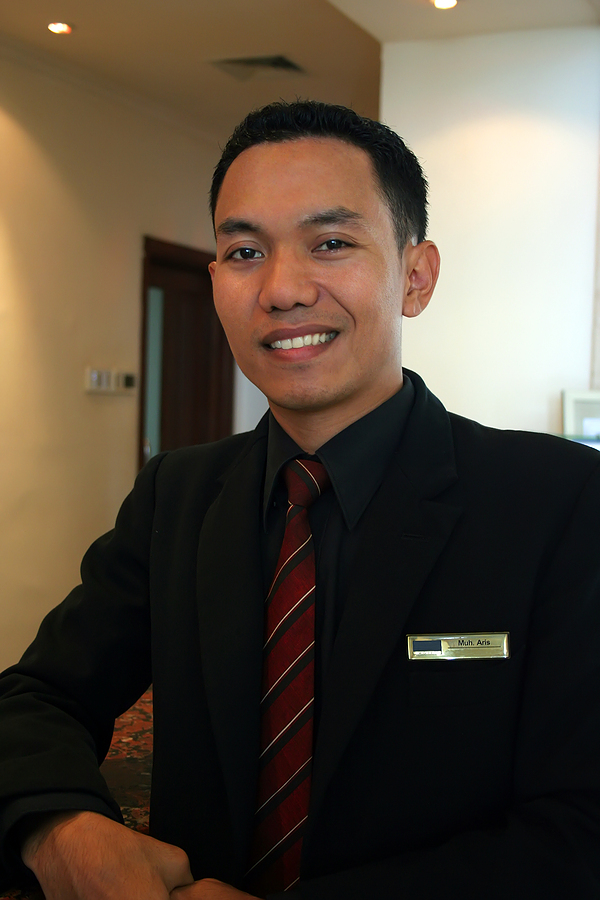
Guests of hotels and resorts at the top end of the hospitality range of properties are being under-serviced. The impact is felt directly on the top line of sales and potentially indirectly through return visits.
The under-servicing is manifested at the organisation level through low levels of up-selling and cross-selling. Most hospitality staff do not see the value in cross-selling and up-selling for themselves or for their guests.
However, research by The Forum Corporation of North America confirmed that 88% of customers value being advised on products and services that better meet their needs. Further, 73% are interested in hearing about new products and services and 42 percent buy “sometimes” or “frequently”
The hospitality industry more than any other, has segments which desire to have their wants satisfied as well as their needs and appreciate an appropriate cross-sell or up-sell.
Guests using four star and five star resorts and hotels consist of three basic segments:
- Leisure (tourist) guests
- Conference guests and
- Business guests
The needs and wants of the guests in each case go beyond the provision of somewhere to sleep, somewhere to eat and somewhere to conduct meetings.
Leisure guests at a resort or hotel clearly want to spend time away from their normal environment. Otherwise why would they come? They need good accommodation, pleasant staff, a variety of food experiences and efficient and effective service.
They want, however, to experience many different things which can be retained as a pleasant memory to be recounted amongst friends and family. For leisure guests a stay at a resort or hotel is not just about relaxing but about bragging rights which build their self esteem. They may want, for example, to have a dining experience that is significantly different from anything they would get at home.
Except for reservations staff and some front office staff, hotel and resort staff do not know enough about the services the property they work in provides to be able to advise leisure guests about the services that are available.
Similarly, conference guests need efficient handling of their conference sessions. Audiovisual must work first time, every time. Refreshments must be available at the time of a break commencing. An ability to be flexible in meeting changed break requirements is very desirable. Planned excursions and events must be executed smoothly.
Individual conference guests, however, often have further wants. Guests may want an upgrade in the wine package that is served with dinner. Guests as individuals may want, but be unaware of, the facility to provide a massage. Guests may want to play a round of golf after the conference is completed.
Most staff at a resort/hotel do not bring to the attention of a conference guest extra services that are available. Sometimes this is fuelled by a fear of doing the wrong thing by the conference organiser. Conference organisers will have established rules about what is allowable as an expense or not. However, staff should not feel precluded from informing conference guests about the services provided by the resort/hotel.
The decision by conference guests to use other services is separate to being informed about their availability.
Business guests have needs and wants somewhat of a combination of a leisure guest and a conference guest, with some additional needs attributable to carrying on their daily business whilst out of the office, often in another state or country.
Once again, however, most staff in a hotel/resort do not know enough about the property’s services to be able to cross-sell or-up sell to guests from the entire range of segments.
In addition to not knowing enough about the products and services that the hotel/resort sells, hospitality staff generally have two further barriers to cross-selling and up-selling.
- They believe that guests do not want to be sold the services. Most hotel and resort staff either come from a backgrounds or are of an age where attending four and five star resorts/hotels for an extended visit is not within their financial reach. Staff will judge what a guest wants or needs based on their own background. In doing so, they determine that guests will not want to buy before trying to sell.
- They do not know how to cross-sell and up-sell Cross-selling is not difficult, but does have two basic principles supported by research. Those principles are:
- Satisfy the guest’s initial request for service
- Only cross-sell products and services related to the guest’s needs established by sing probing questions during their initial request for service
- Focus on the guest needs describing how the additional product or service will benefit them
To improve the perception of customer service, top line sales and bottom line profits, hospitality staff need to be proactively trained in and tested on the:
- products and services of the property,
- asking probing questions
- servicing the needs and wants of the segments attending the property and,
- cross-selling of products and services.



